This year Valentine's Day, Mother's Day and Easter all occur within five weeks. But with a bit of planning, retailers can make this short season a sweet one, says Amanda Nicholls
The Christmas decorations may have only just come down, but it's already time to turn your attention to spring. And this year especially, it's vital retailers get organised sooner rather than later.
With Valentine's Day on February 14 and Mother's Day on March 2, these two occasions will be the closest they have been for more than seven years. And with Good Friday falling on March 21, Easter weekend is the earliest it has been since 1913.
Market analyst Mintel warns that this could have an impact on sales. "An early Easter limits the trading period following the diet peak of January and, consequently, market values suffer," it says.
So how can you make the most of this short season? Confectionery specialist Hancocks advises retailers to get spring occasion products on display as quickly as possible.
"Easter will be here too soon after Christmas for many retailers, and making the most of the spring occasions could require a bit of nerve," says purchasing director Richard Brittle. "Valentine's Day, Mother's Day and Easter all fall within five weeks of each other and so retailers must be ready early in order to gain fully."
Brittle says that an early Easter also means manufacturers will be reducing their production by about 5%, so that stocks could be tight and sales are likely to be late.
Hancocks' advice to retailers is to communicate the season early to consumers, develop a strong display, look for a mixture of bespoke occasion products and stock main brands cautiously.
This could be sound guidance as Mintel figures show the overall market value of seasonal chocolate is in decline. Although the total market was worth an estimated £420m in 2006, it forecasts that this will decline 21% to £332m by 2011.
However, although chocolate sales are dipping, AC Nielsen figures show that 56% of adult consumers still purchase boxed chocolates at Easter. Boxed and in-laid chocolate varieties were also worth a total £59.5m for Valentine's Day and Mother's Day in 2007, an increase of 4% across the previous two years.
Dave McNulty, convenience sales customer director at Kraft Foods, says Mother's Day is still a prime occasion for confectionery. "Mother's Day confectionery gifts are mainly bought by men at the last minute," he says. "Retailers should build big, bold displays in male-shopped areas, such as the front of the store."
McNulty adds that retailers should bear in mind that most mums who receive confectionery as a gift are aged over 55, and so established inlaid varieties such as Terry's All Gold are a must-stock.
New Valentine's Day products include Guylian's 250g praline Seashells with removable sleeve, and the I Love You range of praline-filled milk chocolate hearts, available in 200g and 50g packs.
With all three events in such close succession, though, finding the space to put such lines may be a challenge. Ferrero UK recently undertook research to help retailers decide how to optimise shelf space. Based on value share and cash rate of sales, its findings suggest retailers should allocate 60% of their spring confectionery space to gifting, 30% to sharing and 10% for entertaining during the Valentine's Day and Mother's Day period, and 50% to gifting, 40% for sharing and 10% to entertaining for Easter.
Although Easter is still a major event for convenience retailers, the aggressive discounting by the supermarkets has hit medium egg sales hard. And with many multiples selling Easter eggs at a loss to drive footfall, independent retailers will always struggle to compete on price.
Graham Walker from Nestlé Rowntree says that in terms of medium eggs, retailers need to stock a tight range of the best-selling brands which are being given media support. He explains: "The area is not a profitable one for independent retailers, as sales value continues to decline. Instead, retailers should focus valuable shelf space on more lucrative packs like premium and added-value Easter eggs."
Independent retailers' frustrations at the low supermarket prices on eggs has hit home, though, and some manufacturers and distributors are making in-roads into helping convenience stores compete against the supermarkets' heavy discounts.
This year Hancocks has a promotion for independent retailers to help them compete in the Easter egg price war. Throughout the Easter period customers are able to buy any two cases of Cadbury countlines and get a Creme Egg medium Easter egg free (worth £2.99 at rrp), or buy any two cases of Nestlé countlines and get a Kit Kat medium egg free (worth £3.19 at rrp).
Lucky Bags group marketing director Carl Richardson agrees that independent retailers need the support of suppliers if they are to gain sales from the multiples. "Independent retailers have a battle on their hands to compete with the buying power and sheer size and weight of the multiples. They have to be more innovative every year and that's not easy. The onus is on companies like ours to help them find products that are right for their outlet rather than a one-size-fits-all mentality."
This year the big three manufacturers have looked to include more premium lines and add-ons for inspiration. With a nod towards the trend to trading up and darker chocolate, Cadbury Trebor Bassett (CTB) has launched the Bourneville Deeply Dark Chocolate Egg. CTB is also revamping its luxury range with the introduction of The Collection Egg - a trio of truffle eggs inside two thick milk chocolate eggs. It comes in three varieties (milk chocolate, vanilla and caramel) and replaces Cadbury Easter Egg Delight.
Underpinning its Easter activity is the 'Purple goes green' initiative which will see a significant reduction in packaging as well as a new alliance with the National Trust. As part of this, Cadbury is currently trialling Treasure Eggs, which are Easter eggs containing sweets but without the packaging.
A full rollout of the product is planned for next year depending on the success of the trial.
The company has also invested £1m in support of the National Trust Easter Egg Trails, of which there are 200 at National Trust properties around the UK.
To coincide, a Cadbury Easter Egg Trail Pack is being introduced, containing a mix of 18 hollow eggs, Cadbury Creme Egg Minis and Cadbury Dairy Milk Caramel Eggs Minis. The pack has arrows on the back which can be cut out and links to the Egg Trails' website, www.eastereggtrail.com.From Nestlé come two new Shaker Eggs in the Smarties and Milkybar ranges. Both are filled with their corresponding brands and retail at 49p.
In premium filled eggs Nestlé has introduced the Heaven Swiss Milk Chocolate filled egg and a new Black Magic filled egg. Both are available in mini egg varieties, which retail at 55p.
For adults, the company has introduced an interesting add-on for its Aero Bubbles and KitKat eggs. The Aero Milk Bubbles Gift Experience Egg contains a gift certificate that can be exchanged for experiences such as facials, manicures and massages.
The KitKat Gift Egg offers vouchers for experiences such as golf and canoeing lessons. Both have a rrp of £4.99.
New for Mars this year is the Mars & Friends Mini Egg gift pack, which includes Mars, Maltesers Teasers, Milky Way and Galaxy mini eggs in a 180g bag, rrp £1.99.
Also new is the Young Adult range, retailing at £3.99 and aimed at
16- to 24-year-olds, which includes Mars Planets, Galaxy Ripple and Celebrations eggs.
Finally, Mars has added a Galaxy Dark Egg to its range, containing a shell egg and 125g of Galaxy Dark chocolate. It has a retail price of £4.99.
If the pressure from the supermarkets isn't enough, health trends have also put the squeeze on chocolate sales. Mintel warns retailers that children are receiving fewer eggs, eggs with non-edible components, or other more general gifts, in a bid to cut down on chocolate.
Alternatives may include Mr Lucky Bags' Lucky Eggs, which include a new Bart Simpson variety. The Lucky Eggs contain a selection of novelties, toys, sweets and stickers and retail at 99p.
Also new for Easter 2008 are Bob the Builder chocolate eggs, which are packed into an outer display box of 36 eggs and can be placed on counter tops or at till points. Each egg retails for 55p.
Tina Hird, trading controller at Spar, says that it's fortunate that seasonal sales are not all about price. More than 50% of Easter confectionery sales in Spar stores occur in the last two weeks of the season, a position which the convenience sector is ideally placed to take advantage of given the importance of impulse purchases.
She says: "The very aggressive activity in the mults, where they virtually give Easter eggs away, means it is quite difficult for us to have directly competitive offers. Therefore, we focus on points of difference, such as new types of deals, more premium products and offering eggs at full value as a lot of our sales come from distress or impulse purchases.
"Consumers may not necessarily be looking for a deal, but will be looking for an egg to buy there and then."
She agrees that the market isn't just about chocolate any more. "There's more competition from other gifting areas such as CDs and DVDs, where people will be taking into account health issues - not wanting to give too much chocolate but at the same time looking for products that are more gift-worthy," she says. "All of the trading being done in the supermarkets for a number of years has devalued the gift-worthiness of eggs and twist wraps."
Hird advises retailers to move away from standard eggs and instead focus on larger and more premium varieties and on premium boxed chocolates.
Mintel's findings reflect this trend, revealing that consumers are cutting down on chocolate consumption, yet trading up to premium-priced chocolate. "These are frequently targeted at adults because of the sophisticated tastes of chocolate made with unusual cocoa varieties or ingredients. During Easter adults may receive just one egg and consequently consumers seem prepared to trade up on price," the research company says.
The sectors in which convenience stores have a stronger position are filled and mini eggs. AC Nielsen figures for 2007 show that the total filled eggs market is worth almost £40m, with more than a quarter of these sales coming from the impulse channel (£10.5m). The mini eggs market is just behind at £37m, with £7m in impulse. This represents 64% of independent retailers' total spring sales.
CTB's Cadbury Creme Egg continues to lead the category with AC Nielsen figures giving it a whopping 75% value share and worth a healthy £60m. This year CTB will once again be throwing its weight behind Creme Egg's seasonal return with a new £4.5m marketing campaign. The 'Here Today, Goo Tomorrow' TV ads have been on our screens since the beginning of January and CTB says it hopes the high-impact advertising will ensure interest in the brand during this year's short season.
In at number two is Kinder Surprise, which has a 'Spring Bunnies' theme this year with eight different bunnies to collect.
And at third and fourth places are Mars' Galaxy Chocolate Caramel Filled Egg and Mars Filled Egg, both showing a 34% growth in 2007.
The filled and mini egg category has seen a burst of new product development which should help to breathe life into Easter confectionery.
Ferrero UK has launched Kinder Bueno Eggs, targeting young adults who purchase on impulse throughout the Easter season. Each 130g pack contains 13 individually foil-wrapped eggs and has a rrp of £1.99.
Atul Sodha, from Londis in Harefield, Middlesex, took a healthy £4,000-worth of chocolate sales during 2007's spring season and he hopes to build on that success this year.
He starts the season after Christmas by stocking Cadbury's Creme Eggs and Mini Eggs, and then introduces further lines as the season progresses.
Atul says Valentine's Day chocolate sales are dominated by premium chocolate such as Lindt and Thorntons, whereas in the run-up to Mother's Day he sells more traditional brands, such as Roses and Quality Street.
Atul has the added benefit of an extra room adjoining the main shop, which he turns into a seasonal spring store. This year he plans to separate the space into sections, with a third each for Valentine's Day, Mother's Day and Easter.
"It's amazing how much chocolate you can sell if you find the space for it and put some energy behind its promotion and display," he says. "We achieved sales by massively discounting and drawing people in with promotions, such as 'three eggs for £5'. If you work on margins assuming that you are going to get rid of all the stock, you can offer some competitive discounts."
Last year Atul attracted customers by hiring a chocolate fountain, and for Valentine's he offered free tastings with strawberries. "I wasn't expecting to sell strawberries but we sold 16 cases," he recalls.
Another pointer he picked up from Christmas has been the benefit of selling non-food. Although Atul stocks mainly chocolate during spring, he will sell novelty items, such as cuddly toys, and sparkling wines and Champagne.
"We will also be combining chocolates with a cuddly toy and a bottle of wine packaged in cellophane with a bow to offer something bespoke for customers. That's one of the ways we can achieve some kind of difference and add some premium feel," he says.
Graeme Knowles is stocking a variety of chocolates and eggs in his Nisa store in Aberdeen. Although he says premium chocolates sell well for Mother's Day and Valentine's Day, he has found that flowers are becoming an increasingly popular gift choice.
"Plenty of mums say 'Don't buy me a box of chocolates because I'll just eat them all' and, going by units, the volume of flowers we sell for Mother's Day and Valentine's exceeds confectionery," he says.
Graeme has a dedicated display for Easter products. He says: "In the past, Easter was a disaster as we could never really compete with the big stores. But we've been making more of Easter over the past couple of years by making it into a theme period.
"It's an incredibly competitive market but we get good deals through Nisa and can usually sell multibuy Easter eggs at three for £5. We also look to the opposite end of the scale and sell lots of premium eggs at £15 to £25 from brands such as Lindt and Thorntons."
The Christmas decorations may have only just come down, but it's already time to turn your attention to spring. And this year especially, it's vital retailers get organised sooner rather than later.
With Valentine's Day on February 14 and Mother's Day on March 2, these two occasions will be the closest they have been for more than seven years. And with Good Friday falling on March 21, Easter weekend is the earliest it has been since 1913.
Market analyst Mintel warns that this could have an impact on sales. "An early Easter limits the trading period following the diet peak of January and, consequently, market values suffer," it says.
So how can you make the most of this short season? Confectionery specialist Hancocks advises retailers to get spring occasion products on display as quickly as possible.
"Easter will be here too soon after Christmas for many retailers, and making the most of the spring occasions could require a bit of nerve," says purchasing director Richard Brittle. "Valentine's Day, Mother's Day and Easter all fall within five weeks of each other and so retailers must be ready early in order to gain fully."
Brittle says that an early Easter also means manufacturers will be reducing their production by about 5%, so that stocks could be tight and sales are likely to be late.
Hancocks' advice to retailers is to communicate the season early to consumers, develop a strong display, look for a mixture of bespoke occasion products and stock main brands cautiously.
This could be sound guidance as Mintel figures show the overall market value of seasonal chocolate is in decline. Although the total market was worth an estimated £420m in 2006, it forecasts that this will decline 21% to £332m by 2011.
However, although chocolate sales are dipping, AC Nielsen figures show that 56% of adult consumers still purchase boxed chocolates at Easter. Boxed and in-laid chocolate varieties were also worth a total £59.5m for Valentine's Day and Mother's Day in 2007, an increase of 4% across the previous two years.
Dave McNulty, convenience sales customer director at Kraft Foods, says Mother's Day is still a prime occasion for confectionery. "Mother's Day confectionery gifts are mainly bought by men at the last minute," he says. "Retailers should build big, bold displays in male-shopped areas, such as the front of the store."
McNulty adds that retailers should bear in mind that most mums who receive confectionery as a gift are aged over 55, and so established inlaid varieties such as Terry's All Gold are a must-stock.
New Valentine's Day products include Guylian's 250g praline Seashells with removable sleeve, and the I Love You range of praline-filled milk chocolate hearts, available in 200g and 50g packs.
With all three events in such close succession, though, finding the space to put such lines may be a challenge. Ferrero UK recently undertook research to help retailers decide how to optimise shelf space. Based on value share and cash rate of sales, its findings suggest retailers should allocate 60% of their spring confectionery space to gifting, 30% to sharing and 10% for entertaining during the Valentine's Day and Mother's Day period, and 50% to gifting, 40% for sharing and 10% to entertaining for Easter.
Battle lines
Although Easter is still a major event for convenience retailers, the aggressive discounting by the supermarkets has hit medium egg sales hard. And with many multiples selling Easter eggs at a loss to drive footfall, independent retailers will always struggle to compete on price.
Graham Walker from Nestlé Rowntree says that in terms of medium eggs, retailers need to stock a tight range of the best-selling brands which are being given media support. He explains: "The area is not a profitable one for independent retailers, as sales value continues to decline. Instead, retailers should focus valuable shelf space on more lucrative packs like premium and added-value Easter eggs."
Independent retailers' frustrations at the low supermarket prices on eggs has hit home, though, and some manufacturers and distributors are making in-roads into helping convenience stores compete against the supermarkets' heavy discounts.
This year Hancocks has a promotion for independent retailers to help them compete in the Easter egg price war. Throughout the Easter period customers are able to buy any two cases of Cadbury countlines and get a Creme Egg medium Easter egg free (worth £2.99 at rrp), or buy any two cases of Nestlé countlines and get a Kit Kat medium egg free (worth £3.19 at rrp).
Lucky Bags group marketing director Carl Richardson agrees that independent retailers need the support of suppliers if they are to gain sales from the multiples. "Independent retailers have a battle on their hands to compete with the buying power and sheer size and weight of the multiples. They have to be more innovative every year and that's not easy. The onus is on companies like ours to help them find products that are right for their outlet rather than a one-size-fits-all mentality."
This year the big three manufacturers have looked to include more premium lines and add-ons for inspiration. With a nod towards the trend to trading up and darker chocolate, Cadbury Trebor Bassett (CTB) has launched the Bourneville Deeply Dark Chocolate Egg. CTB is also revamping its luxury range with the introduction of The Collection Egg - a trio of truffle eggs inside two thick milk chocolate eggs. It comes in three varieties (milk chocolate, vanilla and caramel) and replaces Cadbury Easter Egg Delight.
Underpinning its Easter activity is the 'Purple goes green' initiative which will see a significant reduction in packaging as well as a new alliance with the National Trust. As part of this, Cadbury is currently trialling Treasure Eggs, which are Easter eggs containing sweets but without the packaging.
A full rollout of the product is planned for next year depending on the success of the trial.
The company has also invested £1m in support of the National Trust Easter Egg Trails, of which there are 200 at National Trust properties around the UK.
To coincide, a Cadbury Easter Egg Trail Pack is being introduced, containing a mix of 18 hollow eggs, Cadbury Creme Egg Minis and Cadbury Dairy Milk Caramel Eggs Minis. The pack has arrows on the back which can be cut out and links to the Egg Trails' website, www.eastereggtrail.com.From Nestlé come two new Shaker Eggs in the Smarties and Milkybar ranges. Both are filled with their corresponding brands and retail at 49p.
In premium filled eggs Nestlé has introduced the Heaven Swiss Milk Chocolate filled egg and a new Black Magic filled egg. Both are available in mini egg varieties, which retail at 55p.
For adults, the company has introduced an interesting add-on for its Aero Bubbles and KitKat eggs. The Aero Milk Bubbles Gift Experience Egg contains a gift certificate that can be exchanged for experiences such as facials, manicures and massages.
The KitKat Gift Egg offers vouchers for experiences such as golf and canoeing lessons. Both have a rrp of £4.99.
New for Mars this year is the Mars & Friends Mini Egg gift pack, which includes Mars, Maltesers Teasers, Milky Way and Galaxy mini eggs in a 180g bag, rrp £1.99.
Also new is the Young Adult range, retailing at £3.99 and aimed at
16- to 24-year-olds, which includes Mars Planets, Galaxy Ripple and Celebrations eggs.
Finally, Mars has added a Galaxy Dark Egg to its range, containing a shell egg and 125g of Galaxy Dark chocolate. It has a retail price of £4.99.
health kick
If the pressure from the supermarkets isn't enough, health trends have also put the squeeze on chocolate sales. Mintel warns retailers that children are receiving fewer eggs, eggs with non-edible components, or other more general gifts, in a bid to cut down on chocolate.
Alternatives may include Mr Lucky Bags' Lucky Eggs, which include a new Bart Simpson variety. The Lucky Eggs contain a selection of novelties, toys, sweets and stickers and retail at 99p.
Also new for Easter 2008 are Bob the Builder chocolate eggs, which are packed into an outer display box of 36 eggs and can be placed on counter tops or at till points. Each egg retails for 55p.
Tina Hird, trading controller at Spar, says that it's fortunate that seasonal sales are not all about price. More than 50% of Easter confectionery sales in Spar stores occur in the last two weeks of the season, a position which the convenience sector is ideally placed to take advantage of given the importance of impulse purchases.
She says: "The very aggressive activity in the mults, where they virtually give Easter eggs away, means it is quite difficult for us to have directly competitive offers. Therefore, we focus on points of difference, such as new types of deals, more premium products and offering eggs at full value as a lot of our sales come from distress or impulse purchases.
"Consumers may not necessarily be looking for a deal, but will be looking for an egg to buy there and then."
She agrees that the market isn't just about chocolate any more. "There's more competition from other gifting areas such as CDs and DVDs, where people will be taking into account health issues - not wanting to give too much chocolate but at the same time looking for products that are more gift-worthy," she says. "All of the trading being done in the supermarkets for a number of years has devalued the gift-worthiness of eggs and twist wraps."
Hird advises retailers to move away from standard eggs and instead focus on larger and more premium varieties and on premium boxed chocolates.
Mintel's findings reflect this trend, revealing that consumers are cutting down on chocolate consumption, yet trading up to premium-priced chocolate. "These are frequently targeted at adults because of the sophisticated tastes of chocolate made with unusual cocoa varieties or ingredients. During Easter adults may receive just one egg and consequently consumers seem prepared to trade up on price," the research company says.
Eggstra sales
The sectors in which convenience stores have a stronger position are filled and mini eggs. AC Nielsen figures for 2007 show that the total filled eggs market is worth almost £40m, with more than a quarter of these sales coming from the impulse channel (£10.5m). The mini eggs market is just behind at £37m, with £7m in impulse. This represents 64% of independent retailers' total spring sales.
CTB's Cadbury Creme Egg continues to lead the category with AC Nielsen figures giving it a whopping 75% value share and worth a healthy £60m. This year CTB will once again be throwing its weight behind Creme Egg's seasonal return with a new £4.5m marketing campaign. The 'Here Today, Goo Tomorrow' TV ads have been on our screens since the beginning of January and CTB says it hopes the high-impact advertising will ensure interest in the brand during this year's short season.
In at number two is Kinder Surprise, which has a 'Spring Bunnies' theme this year with eight different bunnies to collect.
And at third and fourth places are Mars' Galaxy Chocolate Caramel Filled Egg and Mars Filled Egg, both showing a 34% growth in 2007.
The filled and mini egg category has seen a burst of new product development which should help to breathe life into Easter confectionery.
Ferrero UK has launched Kinder Bueno Eggs, targeting young adults who purchase on impulse throughout the Easter season. Each 130g pack contains 13 individually foil-wrapped eggs and has a rrp of £1.99.
Choc-a-block sales
Atul Sodha, from Londis in Harefield, Middlesex, took a healthy £4,000-worth of chocolate sales during 2007's spring season and he hopes to build on that success this year.
He starts the season after Christmas by stocking Cadbury's Creme Eggs and Mini Eggs, and then introduces further lines as the season progresses.
Atul says Valentine's Day chocolate sales are dominated by premium chocolate such as Lindt and Thorntons, whereas in the run-up to Mother's Day he sells more traditional brands, such as Roses and Quality Street.
Atul has the added benefit of an extra room adjoining the main shop, which he turns into a seasonal spring store. This year he plans to separate the space into sections, with a third each for Valentine's Day, Mother's Day and Easter.
"It's amazing how much chocolate you can sell if you find the space for it and put some energy behind its promotion and display," he says. "We achieved sales by massively discounting and drawing people in with promotions, such as 'three eggs for £5'. If you work on margins assuming that you are going to get rid of all the stock, you can offer some competitive discounts."
Last year Atul attracted customers by hiring a chocolate fountain, and for Valentine's he offered free tastings with strawberries. "I wasn't expecting to sell strawberries but we sold 16 cases," he recalls.
Another pointer he picked up from Christmas has been the benefit of selling non-food. Although Atul stocks mainly chocolate during spring, he will sell novelty items, such as cuddly toys, and sparkling wines and Champagne.
"We will also be combining chocolates with a cuddly toy and a bottle of wine packaged in cellophane with a bow to offer something bespoke for customers. That's one of the ways we can achieve some kind of difference and add some premium feel," he says.
Blooming marvellous
Graeme Knowles is stocking a variety of chocolates and eggs in his Nisa store in Aberdeen. Although he says premium chocolates sell well for Mother's Day and Valentine's Day, he has found that flowers are becoming an increasingly popular gift choice.
"Plenty of mums say 'Don't buy me a box of chocolates because I'll just eat them all' and, going by units, the volume of flowers we sell for Mother's Day and Valentine's exceeds confectionery," he says.
Graeme has a dedicated display for Easter products. He says: "In the past, Easter was a disaster as we could never really compete with the big stores. But we've been making more of Easter over the past couple of years by making it into a theme period.
"It's an incredibly competitive market but we get good deals through Nisa and can usually sell multibuy Easter eggs at three for £5. We also look to the opposite end of the scale and sell lots of premium eggs at £15 to £25 from brands such as Lindt and Thorntons."


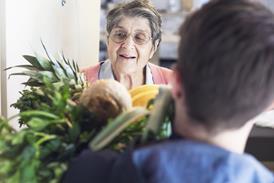
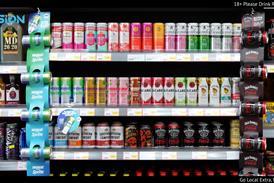
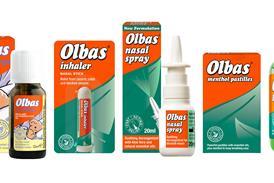



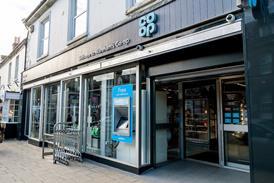













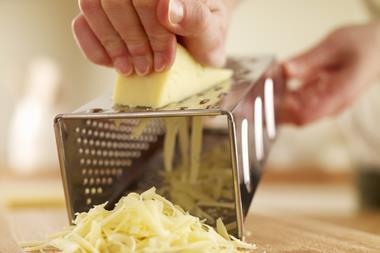
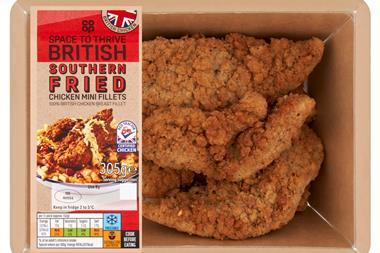

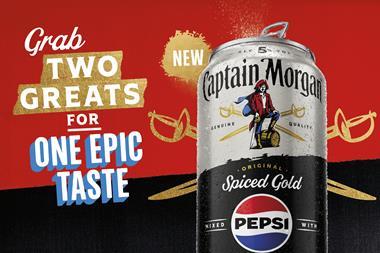
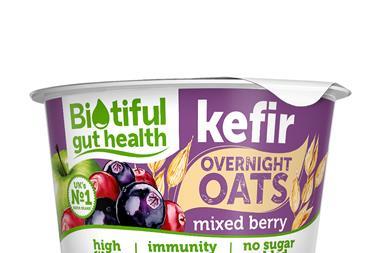
No comments yet